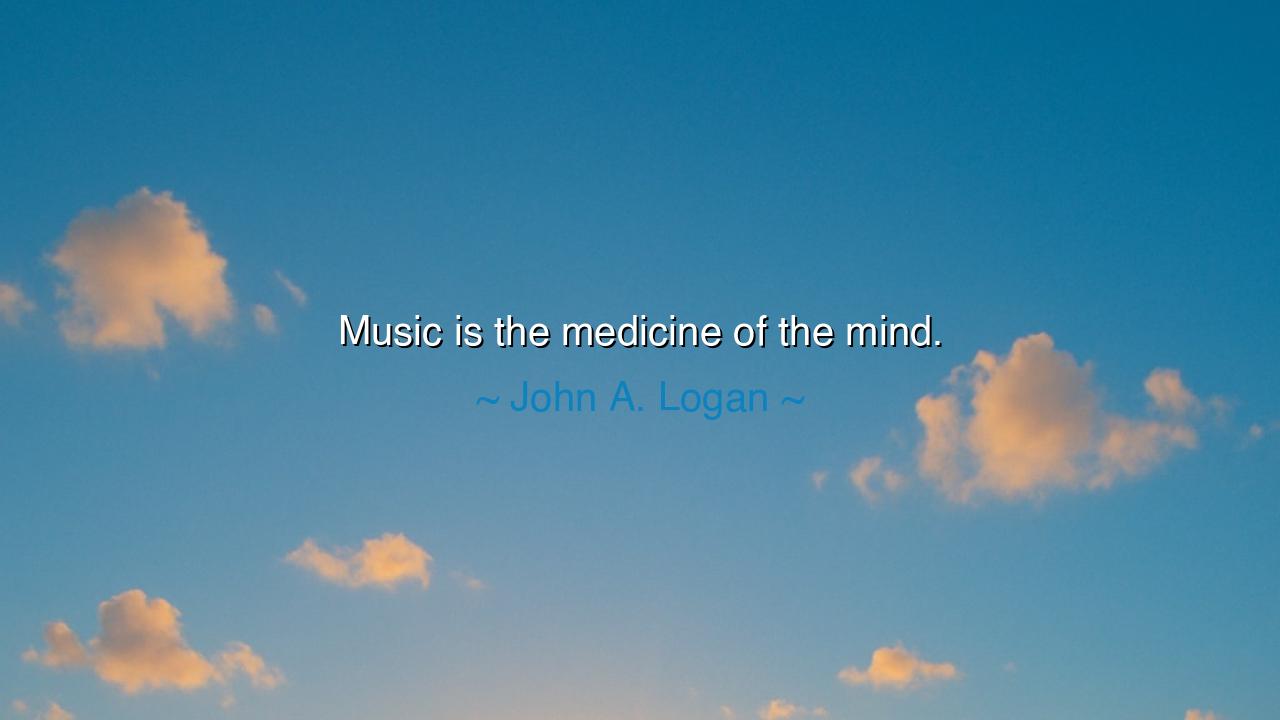
Music is the medicine of the mind.






Hear the words of John A. Logan, soldier and statesman, who declared with timeless wisdom: “Music is the medicine of the mind.” In this short yet profound phrase, he names music not as mere entertainment, but as a remedy, a healing force that restores what is broken within. Where the body needs herbs and balm, the spirit and the mind require melody and song.
When he speaks of medicine, Logan reveals that the mind too can grow ill—sick with sorrow, weary with care, burdened by grief. To such wounds, words often fail, and silence can feel heavy. Yet music enters where reason cannot go. A gentle hymn calms the restless heart, a triumphant march steels the courage, a tender lullaby soothes the sleepless soul. In music is found a cure that no physician can prescribe, for it speaks not to flesh but to the depths of the human being.
The truth of this is seen across all ages and peoples. In ancient Greece, the philosopher Plato taught that music was therapy for the soul, shaping character and restoring harmony to the inner life. Warriors before battle would hear the blare of trumpets and the rhythm of drums, for music strengthened resolve and dulled fear. And after the conflict, laments were sung to heal grief, binding the community together through shared sorrow. Music was medicine in both victory and loss.
History offers vivid examples. During the horrors of World War I, soldiers trapped in the trenches often turned to song. Amid mud, fear, and despair, they sang together—folk songs, hymns, or simple tunes from home. These melodies were more than comfort; they gave men the strength to endure another day. In the darkest nights, the sound of song was proof that the human spirit could not be extinguished. Music was their medicine, restoring sanity where only madness threatened.
Even in the lives of great individuals, we see this truth. Beethoven, struck by deafness, might have surrendered to despair. Yet he turned to the only cure he knew: composing music. Though he could not hear with his ears, he heard with his soul, and through this music he healed himself and gave healing to the world. His Ninth Symphony, filled with joy and triumph, is not merely art but a testament to the power of music to overcome suffering.
O children of tomorrow, understand this: when sorrow weighs upon you, when fear darkens your thoughts, seek not always escape, but seek music. Let it pour into you as water upon dry ground. Let it remind you that your pain is not yours alone, but part of the song of humanity. For in melody we find companionship, in rhythm we find strength, and in harmony we find hope.
Let your practice be thus: surround your life with music that heals. Do not use it only as background noise, but listen with reverence, as one takes medicine with care. Sing when you are weary, play when you are restless, and allow the power of song to restore your mind. Share music with others, for in sharing the medicine is multiplied.
So remember John A. Logan’s words: “Music is the medicine of the mind.” Guard it as you would guard a treasure chest of healing herbs. When despair strikes, let song be your cure; when joy abounds, let music magnify it. For in melody lies the eternal truth—that no matter how deep the wound, the soul can always be mended by the healing touch of music.






AAdministratorAdministrator
Welcome, honored guests. Please leave a comment, we will respond soon